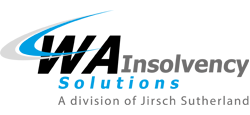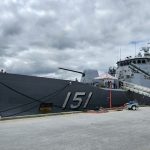One of the many benefits of Voluntary Administration (VA) is that it gives a business breathing room to have a chance at restructuring and surviving. When two related WA-based companies found themselves in financial distress as a result of the impact of COVID-19 on supply chains and the labour market, they used the VA regime to get back on track. But it was with a slight ‘twist’ to give them the best chance of survival.
Background

The companies, which provide fabrication and engineering services to the oil & gas and mining industries, had revenue of $8 million – $10 million, with 35 employees. They relied on material purchases (steel) from China, but COVID-related supply chain issues meant long supply delays and increased costs. “This affected profitability and together with a prolonged industry shortage of skilled labour, it resulted in increased cost of goods sold,” explains Cliff Rocke, Partner with WA Insolvency Solutions (WAIS), Jirsch Sutherland’s WA division. “The companies had a pipeline of work in progress and insufficient resources to complete the work on schedule.”
Solution
Following investigations, it was deemed that voluntary administration would be the best solution. “It provided breathing room to trade the businesses and a moratorium on the companies’ debts,” says Rocke.
Rocke and his team managed the administration, which involved:
- liaising with all stakeholders and the board of directors
- reviewing and improving cash flows
- reviewing and approving expenditure
- facilitating an expressions of interest (EOI) campaign for the outright purchase of the businesses and asset or the restructuring of the companies through a Deed of Company Arrangement (DOCA)
- liaising with interested parties
- offering analysis / estimated return to creditors
- finalising reports to creditors and facilitation numerous creditors meetings
- liaising with solicitors
“We also had daily contact with the director, who was very actively involved in the business and added value to the administration,” says Rocke.
WAIS also took the uncommon step of applying to extend the convening period to a date that was approximately seven months after the date of appointment. “Normally voluntary administrations run for between six and eight weeks, but the longer period gave the companies time to complete the work in progress as well as complete a sale of business campaign. The Court granted this extension, which meant the time constraints imposed by the VA process were alleviated. There was also competing interest of parties seeking to acquire or restructure the companies,” explains Rocke.
The team encountered various challenges including the numerous variations to the parties’ restructuring proposals, which resulted in two adjournments of the second meeting of creditors and eligible employee meetings. “However, this simply added to the workload, as it meant further reports and meetings, all while continuing to have control of the trading operations,” Rocke says.
Result
Ultimately, DOCAs were executed for both companies, both of which have been fully effected and subsequently creditors’ trusts have been formed.
The outcome saw all employee jobs (around 35) saved, the companies have retained various quality assured certifications that were crucial to serving the extensive client base, and they have moved forward without legacy debt and / or without any potential negative impacts in obtaining future work due to the stigma associated with companies in external administration.











